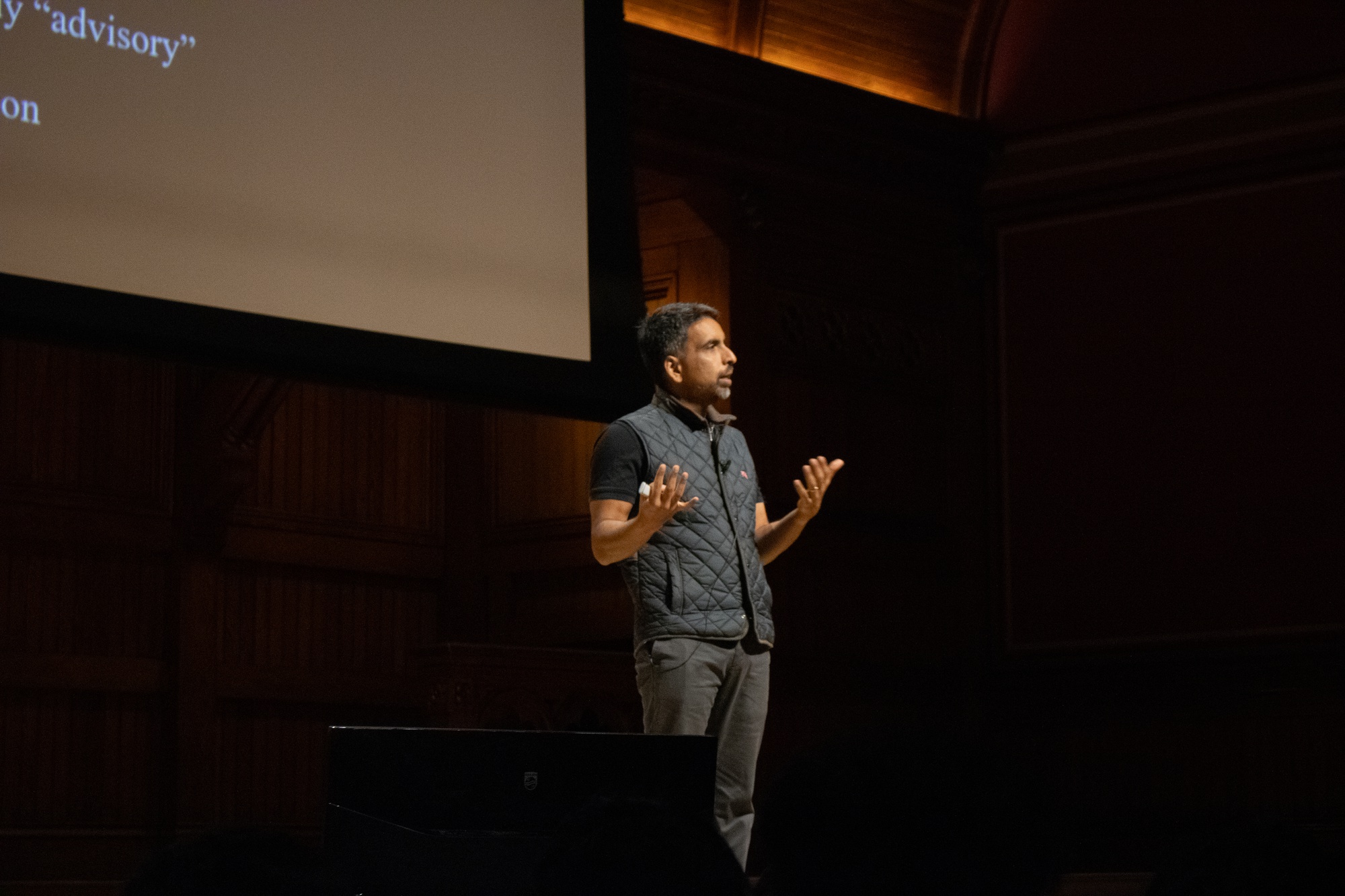Sal Khan, the CEO and founder of Khan Academy, expressed during an event at Harvard-MIT that the integration of artificial intelligence in education holds significant importance.
The event, hosted by the Harvard Graduate School of Education and the Berkman Klein Center for Internet and Society, in collaboration with various affiliated businesses, marked the commencement with panel discussions.
When OpenAI, the entity behind ChatGPT, reached out to Khan Academy last year, Sal Khan initially felt intrigued but skeptical about the technology.
Despite the initial concerns and reactions from certain school districts regarding the deployment of ChatGPT, which led to some restrictions, there was a noticeable shift in perspective by the time Khan Academy introduced its AI companion, named “Khanmigo,” in March. Khan emphasized that the education system began acknowledging the potential benefits of such tools.
To address concerns about academic integrity, Khan highlighted the importance of monitoring AI interactions, especially with minors, to ensure proper guidance and supervision.
Khanmigo, the AI companion at Khan Academy, engages students in dialogue while assisting them with assignments, providing feedback to teachers on student progress, and encouraging independent thinking rather than simply providing solutions.
In an effort to enhance user engagement, Khan mentioned the ongoing development of the AI model’s personality and interactive capabilities.
A forthcoming feature of Khan Academy’s AI companion will involve assisting students with written essays, providing teachers with comprehensive insights into the writing process to prevent plagiarism.
Khan emphasized the potential time-saving benefits for instructors through AI interventions, noting that the technology could streamline tasks and improve efficiency.
Dean Bridget Terry Long of HGSE reflected on the initial skepticism surrounding AI in education and the subsequent shift towards exploring how AI can enhance the fundamental aspects of teaching practices.
Furthermore, Khan discussed the evolving landscape of computer science jobs, suggesting that routine tasks could be automated, allowing programmers to focus on more complex responsibilities with the support of AI systems.
Khan also speculated on the impact of AI on creative industries like Hollywood, envisioning a future where content creation becomes more accessible and cost-effective through AI assistance.
Highlighting the role of AI in influencing user behavior through social media and search platforms, Khan proposed leveraging AI capabilities to drive positive educational outcomes and foster learning growth.
In contemplating a scenario where AI advocates for users’ best interests, Khan raised thought-provoking questions about the potential societal implications and ethical considerations surrounding AI integration across various sectors.






